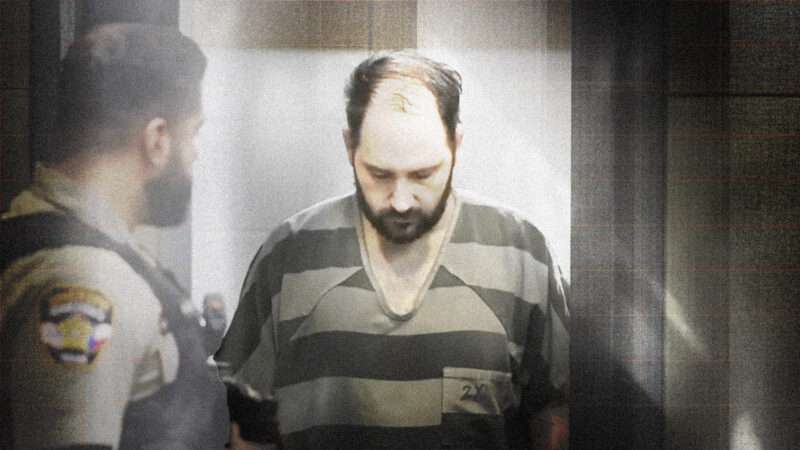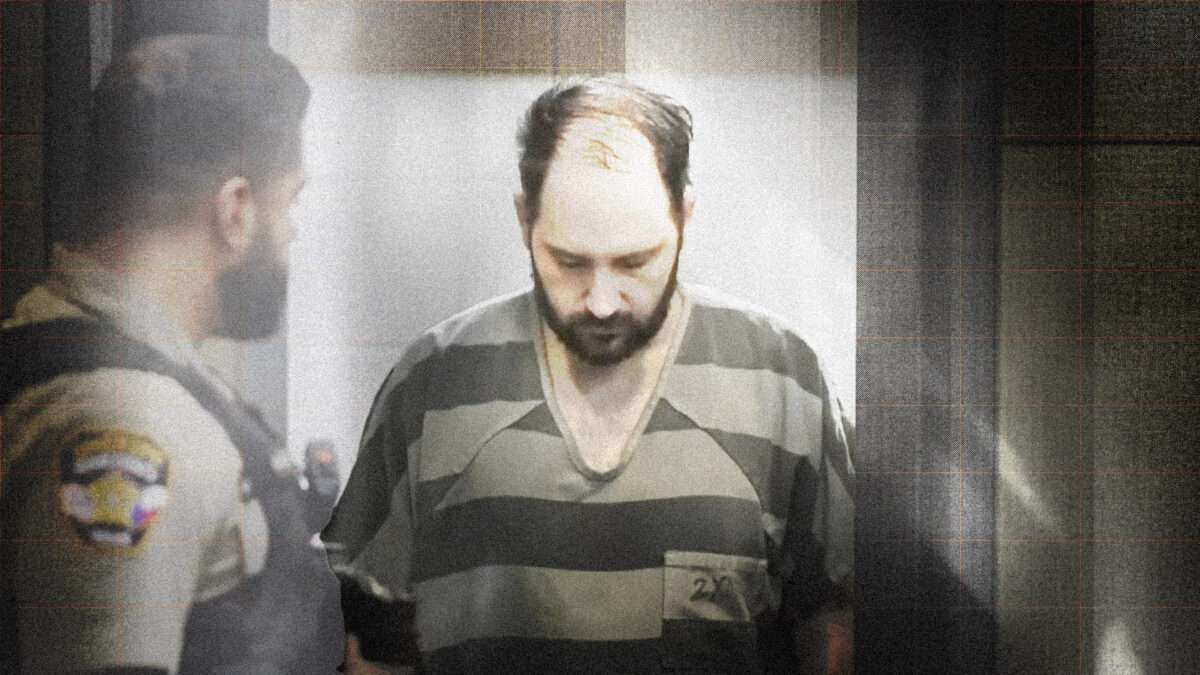Daniel Perry's Pardon Makes a Mockery of Self-Defense

That there are government officials who politicize the law is about as foundational to the discourse as any complaint I can think of. The criticism is sometimes quite fair. And for the latest example of a soft-on-crime politician flouting law and order, we can look to Texas Gov. Greg Abbott.
Abbott, of course, is no self-styled progressive. But his recent decision to pardon Daniel Perry, who was convicted last year of murdering Garrett Foster, channels the spirit of the progressive prosecutors he criticizes for allegedly refashioning the law to suit their ideological preferences. He just has different targets.
The governor, who last year urged the Texas Board of Pardons and Paroles to recommend a pardon for Perry, doesn't see it that way. "Texas has one of the strongest 'Stand Your Ground' laws of self-defense that cannot be nullified by a jury or a progressive District Attorney," he wrote in a statement yesterday, approving the pardon after the board officially obliged his request. (It's worth noting that the board, whose members are appointed by the governor, circumvented its own requirement that "evidence of actual innocence from at least two trial officials, or the findings of fact and conclusions of law from the district judge indicating actual innocence" be submitted to even consider such a pardon.)
It is absolutely true that the right to self-defense is vital. And to argue that Perry—who, prior to killing Foster at a 2020 Black Lives Matter protest, wrote that he wanted to "shoot the [protesters] in the front and push the pedal to the metal"—acted in self-defense is to make a total mockery of that right and those who've had to exercise it.
It is also true that many district attorneys, some of them so-called "progressive" prosecutors, appear to disdain that right. There are the cases across New York City I've covered, for example, where prosecutors are unconscionably seeking lengthy prison terms for people who acted in self-defense but had the audacity to do so with an unlicensed gun. That includes the case of Charles Foehner, an elderly man who shot a mugger in Queens, after which law enforcement brought so many weapons charges against him that Foehner would go to prison for life if convicted on all. That was in June 2023. In November, LaShawn Craig of Brooklyn shot a masked man who'd entered his apartment. Though prosecutors concede the shooting was in self-defense, they also charged him with several weapons offenses, including criminal possession of a weapon, a violent felony.
And then, most famously, there was Kyle Rittenhouse, whose 2021 prosecution for murder polarized much of the nation, despite that, if you knew the facts, it was an obvious example of self-defense—something I made very clear at the time.
There are some interesting parallels between Rittenhouse's case and Perry's case that are hard to ignore. Both men used their guns at protests against police brutality, many of which popped up across the U.S. in the summer of 2020. The shootings happened exactly a month apart. Then their stories diverge considerably, ending in an acquittal and a conviction, because the way they used their firearms was quite different, despite the culture war backdrop being the same. Both of these things can be true.
In July 2020, Perry ran a red light and drove into a crowd of protesters. That in and of itself, of course, is not enough to deduce that he was looking for a fight. His own statements prior to doing so, however, add a great deal of helpful context and show his frame of mind at the time. "I might have to kill a few people on my way to work they are rioting outside my apartment complex," he wrote on social media on May 31, 2020. Also in May, he threatened to a friend that he "might go to Dallas to shoot looters." And then in mid-June, he sent that message about going to a protest, "shoot[ing] the ones in the front," and then careening his car through the hubbub.
This was part of a pattern. Austin police detective William Bursley testified, for instance, that Perry searched on Safari for "protesters in Seattle gets shot," "riot shootouts," and "protests in Dallas live." It is not hard to connect the dots between his searches and messages.
So what about that stand-your-ground defense Abbott alleges the jury nullified? Core to Perry's case and trial was whether he reasonably feared for his life that July evening. Foster indeed had a rifle on him—because open carry is legal in Texas. The Second Amendment does not solely exist for people with conservative views. The big question then: Was Foster pointing the gun at Perry when he approached his vehicle? For the answer, we can go to Perry himself, who told law enforcement that he was not. "I believe he was going to aim at me," he said. "I didn't want to give him a chance to aim at me." But that is not a self-defense justification, as Perry cannot claim clairvoyance.
That the jury reached the conclusion they did is not a mystery, nor is it an outrage. What is outrageous, however, is that a governor who claims to care about law and order has made clear that his support for crime victims is at least in part conditional on having the "right" politics.
The post Daniel Perry's Pardon Makes a Mockery of Self-Defense appeared first on Reason.com.

